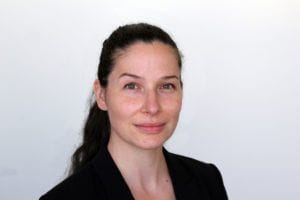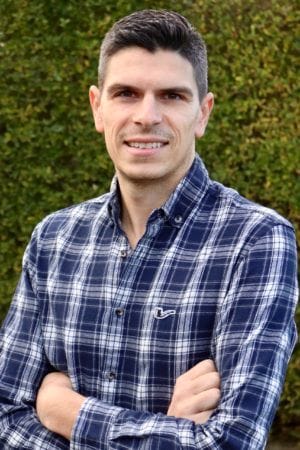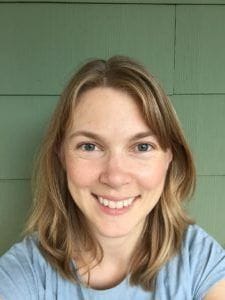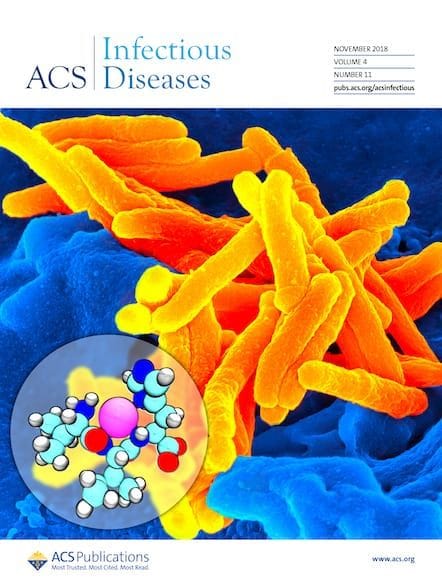The ACS Infectious Diseases Young Investigator Award and the ACS Division of Biological Chemistry recognize outstanding young investigators in the infectious diseases field who are within ten years of their last training experience or at the Assistant Professor level. The 2021 awardees are: Eszter Boros: Assistant Professor, Department of Chemistry, Stonybrook University David Olagnier: Associate Professor, Department […]

The ACS Infectious Diseases Young Investigator Award and the ACS Division of Biological Chemistry recognize outstanding young investigators in the infectious diseases field who are within ten years of their last training experience or at the Assistant Professor level. The 2021 awardees are:
- Eszter Boros: Assistant Professor, Department of Chemistry, Stonybrook University
- David Olagnier: Associate Professor, Department of Biomedicine, Aarhus University
- Sloan Siegrist: Assistant Professor, Department of Microbiology, University of Massachusetts
As winners of the awards, they will each receive a plaque, an award of $1,000, and up to $500 in travel reimbursement to attend the fall 2021 ACS Fall National Meeting & Exposition in Atlanta, where they will present at an ACS Division of Biological Chemistry symposium in their honor.
Read on to find out more about our 2021 awardees!
Eszter Boros

What does winning this award mean to you?
I am extremely humbled and honored to have been selected for this award. Infectious disease research is a brand new effort in my lab, and it is wonderful to be recognized for our growing contributions to the field.
What’s one piece of advice you’d give to someone just entering the field?
Do not be afraid to ask for help when you hit roadblocks. Asking other labs for help has resulted in exciting collaborations and excellent learning experiences for all participating parties for principal investigators and trainees alike.
Where do you hope to see your career 10 years from now?
In 10 years from now, I hope that my lab will be able to celebrate the translation of at least one of our compounds into humans.
David Olagnier

What does winning this award mean to you?
It is safe to say that I am extremely happy, but it is hard to put into words what winning this award means to me. More than anything, it is an incredible honor to be recognized and acknowledged for the contributions I have made in the infectious diseases field in the past decade. When I think of the young and promising researchers who have been previously recognized for this award – I feel incredibly humbled to now be standing alongside them. It is really special to be acknowledged for the long hours and hard work I have put in to make my research stand and to see where it is today. Winning this award also means more visibility and a larger reach for my research. It is one thing for me to know how strong my research is; it is another for my scientific peers to feel the same towards it too.
What’s one piece of advice you’d give to someone just entering the field?
I would certainly start by saying that becoming successful in science is not easy and that this success relies on multiple factors that are, unfortunately, not always all dependent on you. My three main pieces of advice would be: determination, commitment, and optimism. Determination and commitment are the key features for a young researcher. One should be determined and never give up. Also, without commitment, nothing can happen. Optimism is all about maintaining a positive thinking spirit. Experiments will very often fail, and you will make mistakes, but you will have to learn from them, and this will be a way for you to progress. Accepting and benefiting from criticisms will also help you to grow up as a starting scientist. Finally, savor your successes! They will be more limited than your failures, so enjoy them as much as possible.
Where do you hope to see your career 10 years from now?
I like challenging myself and advancing on a personal level; furthermore, I have a keen interest in discovery. That is what attracted me to research, to begin with. Research always forces you to apprehend things from a different angle. My current research focuses on the use of viruses that possess the capacity to specifically target and kill cancer cells. I have always had this motivation to make discoveries that will ultimately have a direct impact on cancer afflicted individuals. Since the antitumor activity of oncolytic viruses is complex and involves a broad activation of antitumor effector mechanisms, they can be viewed as superior compared to small molecule therapies that only target a single mechanism. In 10 years from now, I wish my lab will be internationally recognized for our discoveries on the topic. Most importantly, I hope that from our fundamental discoveries on the cell biology of hard-to-treat cancer cells, we will have genetically engineered novel recombinant viruses, which will be tested in the clinics as more precise anticancer therapies in patients.
Sloan Siegrist

What does winning this award mean to you?
It’s an unexpected honor after a difficult year. I’m very grateful for the mentors, students, postdocs, research fellows, collaborators, and colleagues who took a chance on me. Came for the science, stayed for the people!
What’s one piece of advice you’d give to someone just entering the field?
Sometimes it’s good to feel dumb. It means you’re stretching yourself. My postdoc was a big leap because my chemistry background wasn’t very strong. I felt dumb for at least a year. So I borrowed notes from an undergraduate in the lab who was taking introductory organic chemistry; I audited a chemical biology class; I asked my new chemist friends lots of naive questions. Gradually I start to find my niche. I still needed hand-holding for any kind of chemical synthesis, but I could give that same hand-holder advice on what features his/her new probe should have in order to be useful to a biologist. Now I have a skill set that spans microbiology and chemical biology. If you regularly seek out situations that are intellectually uncomfortable, you’ll start having ideas that others don’t, simply because you’re willing to put yourself out there.
Where do you hope to see your career 10 years from now?
My undergraduate work was in public health, my graduate work was in microbiology, and my postdoc work was in chemistry. In my independent career, I’ve worked at the interface of two of these disciplines, using chemical tools to understand the fundamentals of the mycobacterial cell envelope. Going forward, I’d like to get back to my early interest in public health and apply our methods and envelope-related knowledge to more translational goals. For example, we have emerging programs in diagnostics and in adjuvants and are trying to commercialize a new assay. I’m really excited about the idea of working on basic and applied questions that are interrelated.
